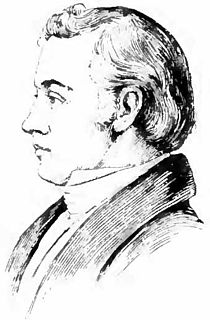A Quote by Dalai Lama
Buddha himself taught different teachings to different people under different circumstances. For some people, there are beliefs based on a Creator. For others, no Creator. The only "definitive truth" for Buddhism is the absolute negation of any one truth as the Definitive Truth.
Related Quotes
The differing opinions regarding the gospel are often categorized as different variations of the same truth, or coming at the same truth from different angles, or even emphasizing different aspects of the same truth. This fails to recognize that the different 'variations' are often altogether different gospels. The Reformed gospel is completely different from the Roman Catholic gospel; a faith-based gospel is in direct contradiction to a works-based gospel; a truly evangelical gospel stands in contrast to an ultracharismatic gospel.
Scientific truth is not what any one scientist puts forth. It can be that, but it is generally not. It is the sum of multiple studies that all lean in the same direction in their results conducted by different people at different times of different nationalities with different competitive urges who all end up getting the same result. Then you have an emerging scientific truth, and then you put that in the textbooks, and that will never be shown to be wrong later on.
There is an appearance of humility in the protestation that the truth is much greater than any one of us can grasp, but if this is used to invalidate all claims to discern the truth it is in fact an arrogant claim to a kind of knowledge which is superior to [all others]...We have to ask: 'What is the [absolute] vantage ground from which you claim to be able to relativize all the absolute claims these different scriptures make?
Countless people have attempted to define the absolute power of the world of nature. Some praise it as god, some call it the Buddha, others call it truth. Still others convert nature into a philosophy by which they attempt to sound its deepest truth. Such attempts to define the power of nature are no more than striving to escape its effects.
The question has often been asked; Is Buddhism a religion or a philosophy? It does not matter what you call it. Buddhism remains what it is whatever label you may put on it. The label is immaterial. Even the label 'Buddhism' which we give to the teachings of the Buddha is of little importance. The name one gives is inessential.... In the same way Truth needs no label: it is neither Buddhist, Christian, Hindu nor Moslem. It is not the monopoly of anybody. Sectarian labels are a hindrance to the independent understanding of Truth, and they produce harmful prejudices in men's minds.
It is not given to man to know the whole Truth. His duty lies in living up to the truth as he sees it, and in doing so, to resort to the purest means, i.e., to non-violence. God alone knows absolute truth. Therefore, I have often said, Truth is God. It follows that man, a finite being, cannot know absolute truth. Nobody in this world possesses absolute truth. This is God's attribute alone. Relative truth is all we know. Therefore, we can only follow the truth as we see it. Such pursuit of truth cannot lead anyone astray.






































